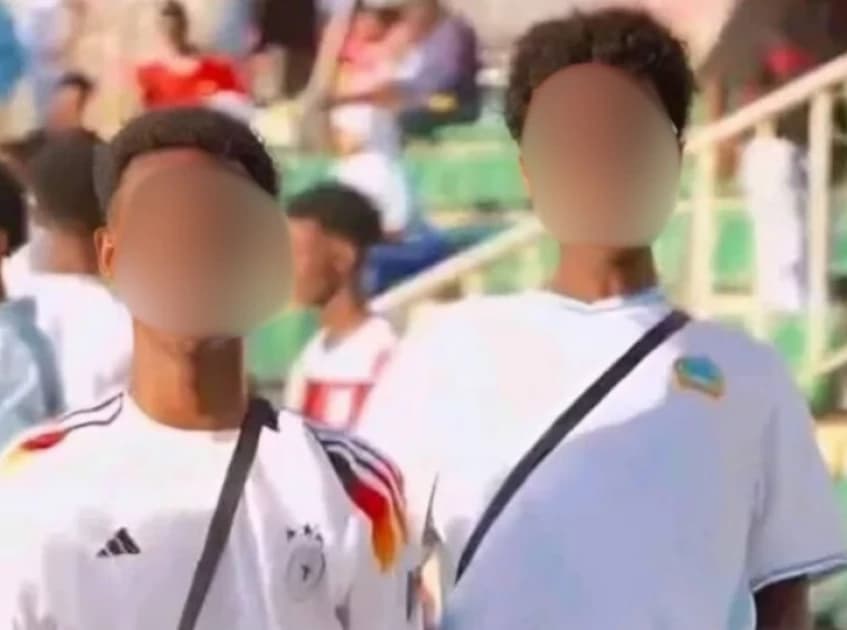We're loading the full news article for you. This includes the article content, images, author information, and related articles.
Two Somali teenagers accused of desecrating the Kenyan flag at Nyayo Stadium have been released on KSh 50,000 surety bail. The incident, captured in a viral video, sparked public outrage and raised questions about national symbols' protection.

Two Somali teenagers, aged 14 and 17, who were arrested in connection with the desecration of the Kenyan flag, have been released on a KSh 50,000 surety bail by the Milimani Children's Court in Nairobi. The court's decision, issued on Thursday, October 2, 2025, allows for their release pending further directions on October 8, 2025.
The minors had initially been detained at the Gigiri Children's Protection Unit to allow for the preparation of a social inquiry report. Senior Principal Magistrate Rose Gitau directed that one of the sureties must be a Kenyan citizen.
The arrests followed the widespread circulation of a video on September 20, 2025, showing fans mishandling the Kenyan flag during a CAF Champions League match between Mogadishu City Club and Kenya Police FC at Nyayo Stadium. The footage depicted individuals stomping, kicking, and tossing the flag, with one person reportedly rubbing it against his crotch. This incident ignited significant public outcry, with many Kenyans demanding swift action against those involved.
Prosecutors had informed the court that the teenagers were in Kenya illegally and faced potential charges of damaging a national symbol and causing a disturbance.
The desecration of national symbols, including the Kenyan flag, is governed by the National Flag, Emblems, and Names Act (Cap 99) of Kenya. This Act prohibits the improper use, desecration, or commercial use of the national flag and other national symbols. Section 2B of the Act specifically makes it an offense to show disrespect, in speech, manner, or writing, to the National Anthem, any specified emblem, likeness, or name, or any representation thereof.
Penalties for such offenses can include a fine not exceeding KSh 5,000, imprisonment for up to six months, or both. More serious breaches, such as illegally flying the flag on unauthorised vehicles, can attract fines of up to KSh 1 million or five years imprisonment.
The incident drew condemnation from various quarters. Mogadishu City Club issued an apology, condemning the actions of the fans and distancing itself from the incident. Somalia's Ambassador to Kenya, Jabril Ibrahim Abdulle, also expressed regret, stating that the actions were contrary to Somali values and interests. Interior Cabinet Secretary Kipchumba Murkomen had previously warned that individuals caught violating the Kenyan flag could face deportation, emphasizing that disrespecting national symbols is a serious offense.
The incident and subsequent legal proceedings highlight the delicate balance between national pride and legal due process, particularly concerning minors. The case also underscores the importance of public education regarding the respectful treatment of national symbols, especially in a multicultural context. The initial detention of the minors and the public discourse surrounding their actions reflect the strong sentiments attached to national emblems in Kenya.
The specific charges the teenagers will ultimately face remain to be formally entered, pending the social inquiry report and further court directions. It is also unclear how their immigration status, given the prosecution's claim of them being in the country illegally, will factor into the final judgment.
The upcoming court mention on October 8, 2025, will be crucial for determining the specific charges and the future legal trajectory of the two teenagers. The social inquiry report is expected to provide insights that may influence the court's decision regarding sentencing or alternative interventions, especially given their minor status.
The incident has sparked broader discussions on national identity, respect for symbols, and the legal framework for handling offenses involving minors in Kenya. It also touches upon diplomatic relations and cultural understanding between Kenya and Somalia.
Keep the conversation in one place—threads here stay linked to the story and in the forums.
Sign in to start a discussion
Start a conversation about this story and keep it linked here.
Other hot threads
E-sports and Gaming Community in Kenya
Active 9 months ago
The Role of Technology in Modern Agriculture (AgriTech)
Active 9 months ago
Popular Recreational Activities Across Counties
Active 9 months ago
Investing in Youth Sports Development Programs
Active 9 months ago
Key figures and persons of interest featured in this article